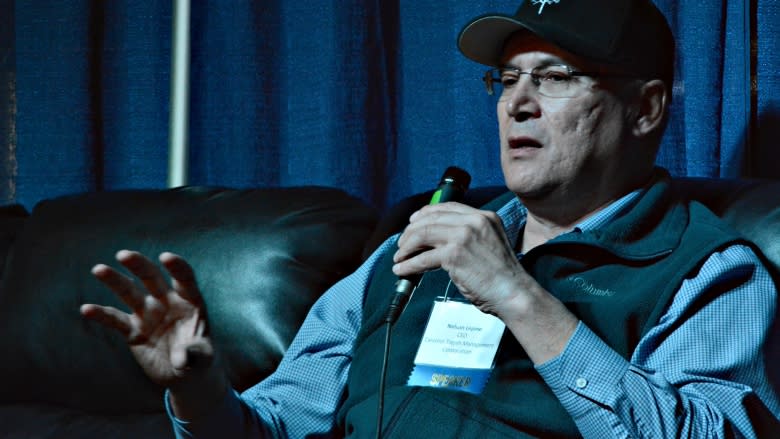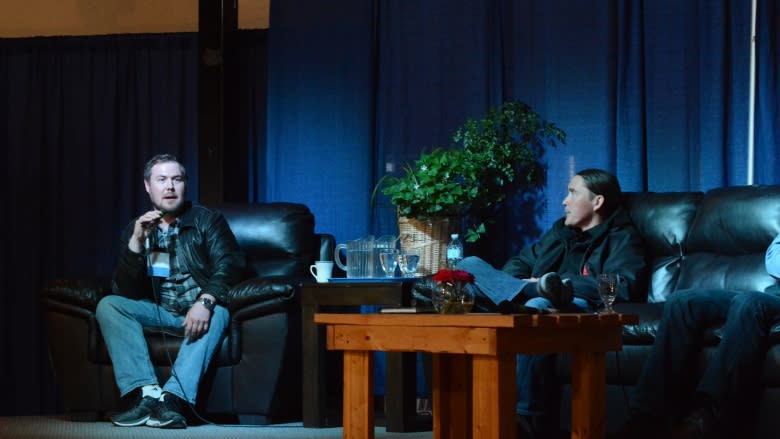'Idiotic' amount of paperwork for grants, say Yukon First Nation development corps.
Indigenous-owned development corporations in Yukon say they're dealing with too much paperwork, when applying for grants and other funding.
Last week's economic development conference in Watson Lake heard from three speakers representing corporations owned and operated by the Carcross/Tagish First Nation, Champagne Aishihik First Nation, Teslin Tlingit Council and White River First Nation.
Speakers described a frustrating bureaucratic process, wherein First Nations have to create dozens of different reports for different funding bodies with different preferred formats and demands.
Separate reports for every grant and agreement
Blair Hogan, owner of Gunta Business Consulting, said the Teslin Tlingit Council has more than 100 contribution agreements which total about $14 million annually. He said the agreements all require specific and separate reporting.
"Why is it so fragmented?" he asked. "You have 100 contribution agreements and 40 are from one government but several different departments," he said.
Speakers described a catch-22 wherein staff are tied up in reporting, which takes funding away from the projects themselves.
"It's like a make-work project," Hogan said.
"When you're at that scale, your finance department is totally maxed out. And they're wondering, 'what is the value of this money?' I understand we need to be accountable to these dollars. A lot of these reporting requirements came from a burn here and there — but now we're all paying for it," Hogan said.
'There has to be some way we can streamline'
Nelson Lepine, Chief Executive Officer of the Carcross Tagish Management Corporation told one anecdote of a $25,000 contribution on a $900,000 project through the Yukon government's Community Development Fund.
Meeting the reporting requirements for that one specific grant involved 76 pages of financial information, he said, as the grant required a full account of the entire project.
"They give you the template to do your financial reporting. And you don't report on the $25,000, you report on the entire $900,000. For me, it was extremely frustrating," he said. "A $900,000 initiative for us is about 76 pages of financials so we had to export all that over [into the provided template] — which I refused to do."
Lepine called the process "idiotic" and said the issue was resolved after about a month of back-and-forth discussion and complaints. The anecdote nevertheless illustrates some foundational problems, he said.
"There has to be some way we can streamline a lot of this stuff. Ensuring that the accountability is there but collectively streamline it. A lot of the governments here create their own reporting systems," Lepine said.
'Future drivers of this territory's economy'
Other topics for last week's panel included a discussion of development corporations' mandates, plans for growth, and best practices for training a local workforce.
The conference also included some praise for the growing role of Indigenous-owned development corporations in Yukon.
Peter Turner, President of the Yukon Chamber of Commerce, said, "the future drivers of this territory's economy are the development corporations. That's where the growth is going to be. I see a lot of strong models of that that already exist and more than are emerging."



